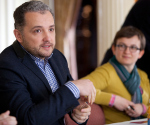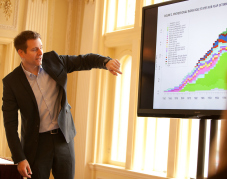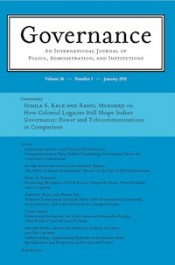Has crisis changed the IMF?
Has the global economic crisis changed the International Monetary Fund — and if so, how? These were the questions posed at a roundtable held at Boston University on April 8. The workshop was sponsored by the Boston University Center for Finance, Law and Policy and co-sponsored by Governance. The conveners were Professors Cornel Ban and Kevin Gallagher.
The IMF has played an important role in shaping governmental responses to the crisis over the past six years. But the crisis has also affected the IMF itself. Scholars from twelve universities participated in the workshop, examining IMF policies on fiscal policy, debt restructuring, financial sector surveillance, capital controls, and other topics.
The workshop papers “showed that some remarkable changes did occur within the IMF,” Ban says. In most cases, the Fund’s openness to new thinking is more obvious in its research and policy advice than in terms its loan programs.
The papers also suggested that crisis has checked a tendency toward mission creep and led the IMF to narrow the scope of its loan programs, focusing on the key elements of a mainly orthodox economic policy agenda. And they provided evidence to challenge the conventional wisdom that crisis impels governments to put aside ideological objections to working with the IMF. The reality about the politics of dealing with the IMF appears to be more complex.
In sum, Ban says, changes in the IMF over the last six years “were too modest to suggest that an economic paradigm change is imminent.” The papers provided reason for concern about the persistence of old habits of thought, which have appeared in some ways to hamper recovery from the crisis.
The workshop was “a fascinating and lively discussion,” Gallagher concluded. “We expect these papers to make an important contribution to understanding about the role of the IMF during the economic crisis.”


